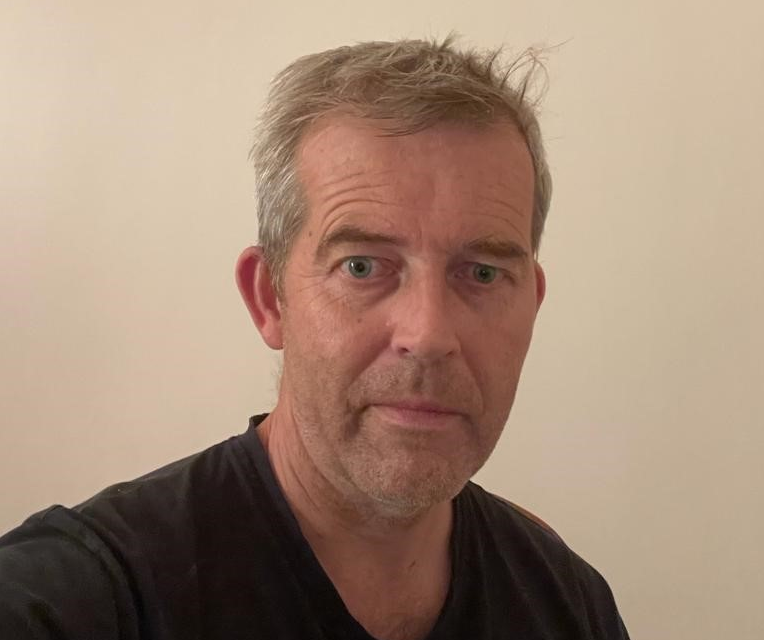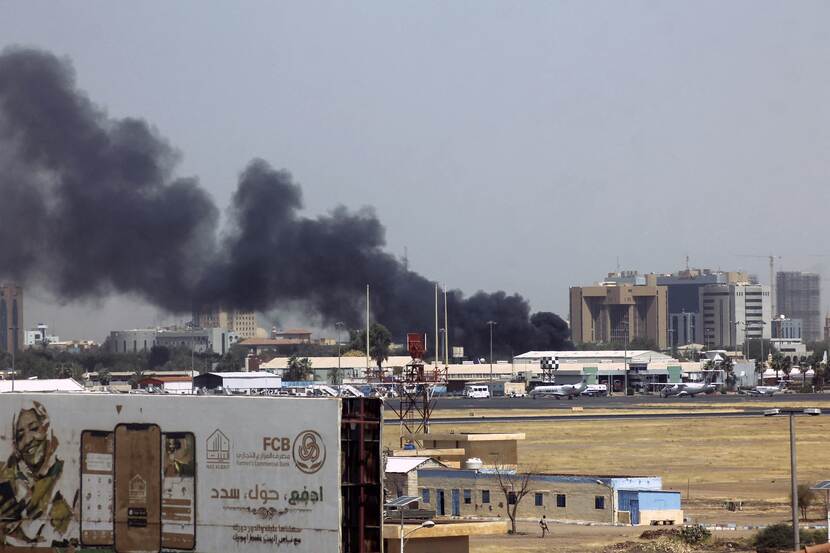‘Lawlessness in Khartoum is growing by the day’
Since the outbreak of fighting in Sudan on Saturday, staff members at the embassy in Khartoum have been confined to their homes. ‘From time to time you can hear the deafening sound of artillery fire or exploding bombs,’ says Deputy Ambassador Martijn Lambarts. ‘We hear that RSF troops are looting more and more shops, and sometimes people’s homes as well. Lawlessness is on the rise.’
Enlarge image
On what began as a sunny Saturday morning in the Sudanese capital Khartoum, Martijn Lambarts received a text message from an embassy staff member warning him about fighting in the southern part of the city.
‘After that, things escalated very quickly,’ says the Dutch deputy ambassador, on the phone from Khartoum. ‘At 10.00 I heard shots and started getting messages about fighting in all parts of the city: around the bases of both the army and the RSF militias, in the city centre and near the Dutch embassy.’ The embassy used WhatsApp to contact all Dutch nationals in Sudan: ‘dig in’ was the message. ‘Stay at home, keep away from windows, don’t go outside.’
‘Between five and seven o’clock in the morning a combat aircraft flew overhead five times. There were shots and explosions everywhere – I could hardly hear myself speak.’
Wardrobe in front of the window
On Saturday fighting broke out between government forces and the RSF (Rapid Support Forces). The RSF is led by General Mohamed Hamdan Dagalo, while the army is under the command of General Abdel Fattah al-Burhan. The RSF, which was formed 10 years ago by members of the country’s notorious militias, was intended to be fully integrated into the armed forces. However, the two generals disagree on the pace of that process.
Since the outbreak of the fighting on Saturday, Lambarts has been stuck at home, a kilometre and a half from the embassy. He has no power in the house, so he has to use a generator during the day, though sparingly, in order to conserve fuel.
Lambarts has put his wardrobe in front of the window of the guestroom. ‘This room is at the back, and it’s the safest part of my house. There’s a lot of talk about random bullets flying around.’ On Sunday evening it seemed as if the fighting was starting to die down, but on Monday there were a new surge of violence. ‘Between five and seven o’clock in the morning a combat aircraft flew overhead five times. They were using heavy-duty ordnance. There were shots and explosions everywhere – I could hardly hear myself speak.’
Enlarge image

Internet as lifeline
Lambarts is in constant contact with embassy staff, Ambassador Irma van Dueren in the Netherlands – who was due to travel back to Sudan on Saturday – and with the Ministry of Foreign Affairs. In addition, ministry staff are in touch with Dutch nationals in Sudan. Lambarts’ Czech wife and two sons live in Prague, and the four regularly speak by video chat. ‘Of course I miss them, but from a safety perspective I’m also glad they’re not here. The internet connection isn’t always stable, but fortunately it works. It’s our lifeline.’ The only person Lambarts sees these days is his home security guard, who currently has no one to relieve him.
The embassy was prepared for periods of unrest, but this eruption of violence in the capital is unprecedented. ‘This is the first time we’ve seen this level of violence in Khartoum,’ says Lambarts. ‘Previous periods of fighting were mainly outside the city, for example in the province of Darfur.’
Hopes of a ceasefire
The deputy ambassador fortunately has enough supplies at home. ‘You buy water in large bottles because the tap water here isn’t drinkable, so I always have a supply at home. I also have a fair amount of dry food, like muesli. But I’m concerned about the next few days. For the general population, food, drinking water and medicine are running low. We hear that the RSF troops are looting more and more shops and sometimes people’s homes as well. Lawlessness is on the rise.’
Lambarts hopes that a ceasefire will be announced in the days ahead and that, in time, the parties to the conflict will return to the negotiating table. ‘But this is a major step backwards in Sudan’s development. The coup in October 2021 was already a serious setback, and this fighting is undoing all sorts of positive developments, such as reforms. That is truly sad for the future of this country.’
Originally published at https://www.government.nl/latest/news/2023/04/18/deputy-ambassador-netherlands-in-sudan-interview



